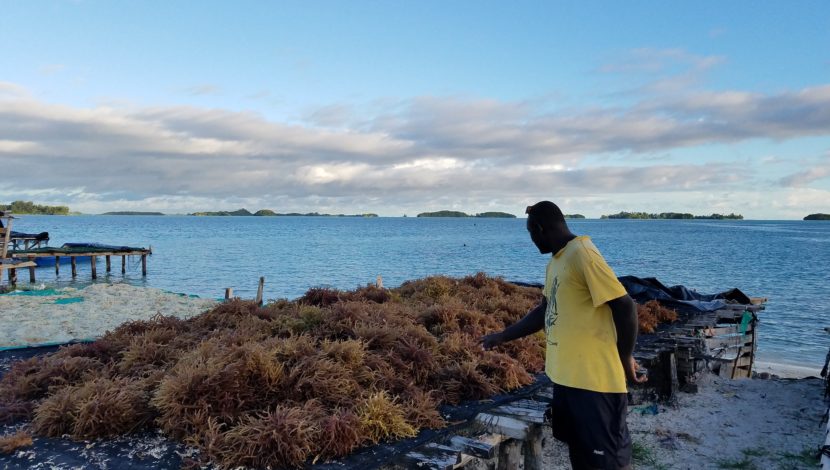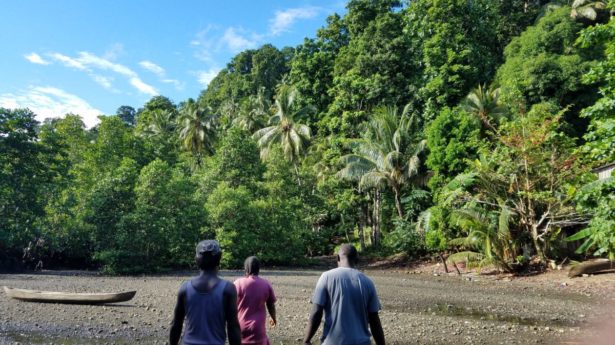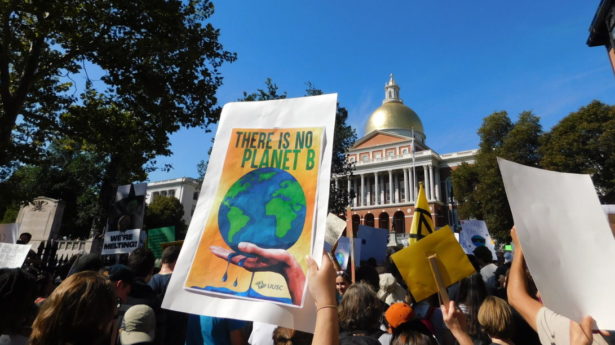The Unitarian Universalist Service Committee advances human rights through grassroots collaborations.
Supporting UUSC Partners Around the World in the Time of COVID-19

By Danielle Fuller-Wimbush & Rachel Gore Freed on April 15, 2020
The world as we knew it just a few short months ago has changed. The past weeks and months have brought unimaginable disruption to the lives of people around the world as the invisible COVID-19 virus has spread from country to country at an unforgiving speed, taking the lives of over a hundred thousand people, exacerbating existing inequalities and vulnerabilities, and leaving almost no one untouched. Our partners are at the frontline, battling for survival, and demonstrating their strength, resiliency, and leadership in these difficult times.
UUSC’s response to COVID-19 is rooted in partnership, with a focus on five key areas:
- Caring for each other.
- Ensuring flexible support for our grantee partners around the world (encouraging partners to pivot as needed and providing general operating support).
- Supporting our activists and coalitions to take collective action.
- Listening, understanding, and monitoring the human rights impacts of both the pandemic and the subsequent economic instability.
- Continuing to do our work as best as we can while examining our response, rooted in the long-term relationships and the trust we’ve built with our partners.
Sharing Updates from Global Partners
In Bangladesh, the world’s largest refugee camp is home to hundreds of thousands of Rohingya refugees who have fled an ongoing genocide in Burma. The situation was already dire. Nearly a million people packed tightly together, with poor sanitation and hygiene, lack of healthcare, and restricted internet access cutting off vital information from the outside world. As the first case of COVID-19 hit the camps, all but the most essential humanitarian aid workers shut down operations, and the refugees have been largely left alone to wait for the potential spread with inadequate information or resources to protect themselves. In response, one of our partners is delivering life-saving supplies including soap, masks, paracetamol, and vitamins. Additionally, many of our partners are advocating for the health of internally displaced peoples and ensuring the restoration of mobile data services needed in the camps to ensure access to vital public health information. Complementing this effort, UUSC is providing additional pressure, working with a U.S.-based coalition to ensure that internet access is reinstated in the camps and access to health information provided.
In Thailand, home to thousands of stateless Muslim migrants from Burma, including some Rohingya, the factories have closed with the lockdown, leaving tens of thousands of migrants without employment or a place to live. Without any legal status, they have nowhere to return home to and are forced to find temporary shelter within the Muslim community at the border. Our partner Burma Human Rights Network is providing vital support by raising funds for food assistance.
In Louisiana, the situation in New Orleans has captured media attention with the spike in COVID-19 cases resulting in hundreds of deaths. At the same time, the Tribal communities in more rural areas are suffering, both from the direct spread of the virus and the economic impact of the seafood supply chains shutting down and the closure of hotels and restaurants. UUSC’s partner Lowlander Center is using UUSC funding to get resources to the community members who need them to cover basic needs during this period of sickness and unemployment. Additionally, working jointly with Lowlander and other partners, UUSC is calling for the next Congressional relief and stimulus package to protect access to water, sanitation, and housing during the crisis by halting all evictions, foreclosures, and water and electricity shut-offs.
In the Pacific, communities are not only facing the ongoing loss of land and culture from rising sea levels, but their healthcare system is stretched thin after months of responding to measles, dengue fever, and now COVID-19. Plus, most of the information about COVID-19 is in English, a language not spoken by many rural Pacific islanders. Our partners in Kiribati are educating their communities about basic hygiene and trying to translate information about COVID-19 into the I-Kiribati language.
In the United States, we share the concern of our partners and coalition allies about the exposure of COVID-19 in immigration detention and shelters. In the words of our partner the Queer Detainee Empowerment Project (QDEP),
“For the thousands of immigrants in detention, social distancing is impossible, as they are housed in crowded facilities with limited access to healthcare and basic hygiene items. This puts immigrants, many of whom have underlying medical conditions, at a high risk of contracting COVID-19.”
UUSC has participated in several advocacy efforts aimed at urging ICE, Governors, and others in power to release everyone in detention, while also asking for basic sanitation supplies such as soap. Similarly, we’re aware of the risk of increased criminalization of black, Indigenous, and people of color in the U.S. We are part of coalitions that are building an understanding of the heightened need to address decarceration the U.S., given that people in prisons cannot social distance and are at heightened risk of contracting COVID-19.
In Mexico, asylum-seekers are particularly at risk, with limited access to healthcare, insecure housing, and still suffering from the trauma that caused them to flee their home. Our partner Asylum Access Mexico is working to maintain services wherever possible, so that refugees are able to get legal status and healthcare that they need, while advocating with local and national governments to include refugees in response plans and remove barriers to healthcare and support.
Also working to protect the rights of refugees is our partner Asociación Pop No’j, in Guatemala, who are advocating with governments throughout the region to halt deportations in the midst of a pandemic. As Pop No’j points out in a recent collective statement that UUSC joined, removals at this time risk sending people back into danger, while also increasing transmission of the virus in places where it has so far been less prevalent. This message is all the more urgent as U.S. authorities double down on policies to exclude asylum-seekers, and reports continue to emerge of people with COVID-19 being forced onto crowded deportation flights. In Guatemala, authorities now state that U.S. deportations are playing a significant role in driving up transmission of the virus.
In Honduras, there are 407 confirmed cases to date. With one of the weakest healthcare systems in the world and only 12 government-owned ventilators, the country lacks the necessary resources to handle the pandemic. In response, Honduras has shut down businesses and issued a strict curfew, creating a dire situation for the millions of people already living in poverty who now are unable to earn a living and have very limited access to food. The Honduran government has been firm on a “military” solution for the pandemic, but there is still no comprehensive “social” solution to guarantee access to food and services like water.
Our partners, Fundación San Alonso Rodríguez (FSAR) and Radio Progreso are partnering in an initiative demanding transparency in the spending of emergency resources, in the application of containment measures, and community participation to ensure the equitable distribution of food and other disaster aid. Further, FSAR and other organizations have presented habeas corpus petitions seeking the release of political prisoners, including the Guapinol 8, arguing that COVID-19 poses a major risk for their lives. At the same time, Radio Progreso and community public radio outlets are using their platforms to counter the spread of false information and provide accurate information related to COVID-19. In recent days, this has led to direct threats against founder Padre Melo and others reporting from Radio Progreso.
UUSC is part of a global human rights movement, one that has faced adversity before and is ready to face systemic inequities and the rapid onset events during times of crisis. While our strategies and ways of working are changing amidst this global uncertainty, and may have to change even more in the coming weeks and months, there is something, more importantly, that we do know: It is that our values and the way we support each other, and our partners, do not change during this time. We will continue to amplify and share the stories from the ground as we hear more developments.
Photo Credit: UUSC
***
About UUSC: Guided by the belief that all people have inherent worth and dignity, UUSC advances human rights globally by partnering with affected communities who are confronting injustice, mobilizing to challenge oppressive systems, and inspiring and sustaining spiritually grounded activism for justice. We invite you to join us in this journey toward realizing a better future!

